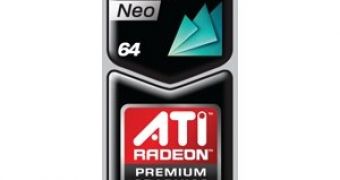Advanced Micro Devices is expected to unveil a new dual-core processor based on the company's newly-released Athlon Neo CPUs, designed for low-cost, thin notebook systems. The upcoming models will come out during the second half of this year and are likely to compete with similar products due to be released by the Santa Clara, California-based leading chip maker, Intel.
According to a recent-news article on IDG's InfoWorld, the Sunnyvale, California-based chip manufacturer is going to deliver the new dual-core processors as part of the Congo platform, designed to provide better performance and integrated graphics capabilities for ultraportable computer systems. The exact release date of said processors hasn't yet been specified, but the company is expected to unveil them sometime during the second half of 2009.
The upcoming dual-core Neo processors are built on the company's new single-core Athlon Neo CPUs, announced last week at the Consumer Electronics Show in Las Vegas, Nevada. The newly-released chips are part of the company's Yukon platform, which also includes ATI graphics controllers. In addition, the Neo processors have been designed with power-efficiency in mind, as they are meant to enable sub-notebook systems to provide a full PC experience within a small package.
AMD's Neo chips, rated at a maximum power consumption of 15 watts, are targeted at a new market, which falls between the higher-priced full-fledged notebook systems and the lower-spec'ed netbooks. The company is positioning its new chips in this market, as it believes that the time span of the increasingly popular netbook category is rather short. According to AMD's Randy Allen, senior vice president of the computing solutions group, netbooks are attractive for some users, but fail to meet the demands of the mainstream computer market.
Instead of competing with the Atom, Advanced Micro Devices is planning on delivering a chip that could enable an effective combo between a processor, a chipset and a graphics chip, which should enable the necessary performance required by mainstream computer systems.

 14 DAY TRIAL //
14 DAY TRIAL //